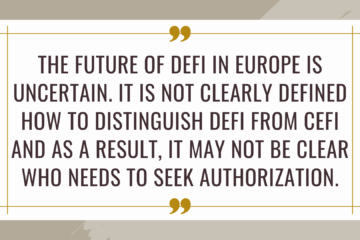Facts and Myths About EU/EEA Passporting

Photo by Aslı Yılmaz on Unsplash
I sometimes feel that confusions and misperceptions about passporting of financial licenses across EU/EEA is an ever-growing bubble.
Today, we will burst this bubble once and for all!
Passporting is a formal recognition of your company’s rights to operate freely in any EEA country (where you are passporting to) and to provide services to the residence of other countries in exactly the same way as if you would be established and licensed in that country.
There are 3 broad categories of “passports” covering different financial services and they are all specified by specific EU Directives.
- Core banking, private or corporate banking (CRD) - advisory services, lending or custody or deposit services
- Capital Markets (MIFID) services – trading financial instruments, brokerage, asset management, etc.
- Payments services and E-money services (PSD2)
What does it mean?
The licenses issued under exceptions or special regimes, such as sandboxes, small payments institutions licenses, “AML-only” licenses, DLT licenses, [latest FinTech trend license of your own choice] are not passportable, because they are not governed by the common EU-wide rules, that would need to be adopted as an EU Directive.
What’s the difference between passporting and the of free movement of goods and services, included into the EU treaties?
It means that you can still “passively” offer your services into other EU/EEA countries, because EU residents are free to choose and buy the services that they like, but:
- Without passporting, you cannot establish a physical branch or carry out local sales operations
- You will be limited how you can market your services, because you cannot specifically target or single our certain groups of people that are clearly residents of another country.
- Regulators from other countries can issue warnings about your activities (especially if you get big enough), such as “please note that Company XXX is no regulated by us and is not authorized to conduct their activity in our country).
How to get your business passported?
If you already have your license, you need to:
- Launch active operations in your home country first.
- Complete specific forms in your home country and send them to your home regulator (you can do it on Day 2 after you launched)
- Your home regulator will check the forms and file for passporting on your behalf. If one of the EU members objects to your passporting request, it would be the job of your home regulator to defend you and explain why the passporting request is valid.
- In very rare cases passporting can denied by a country (for example, in the past it was a common knowledge that Belgian regulator denied passporting requests to some Cypriot Forex trading platforms, but in reality, they just never asked for passporting into Belgium, and did their best not to accept Belgian residents).
- Depending on the type of the service, the process can take between 1 and 3 months.
By the way, we've also compiled a comparative table summarazing the available types of licensing regimes in the EEA. Check it out!


